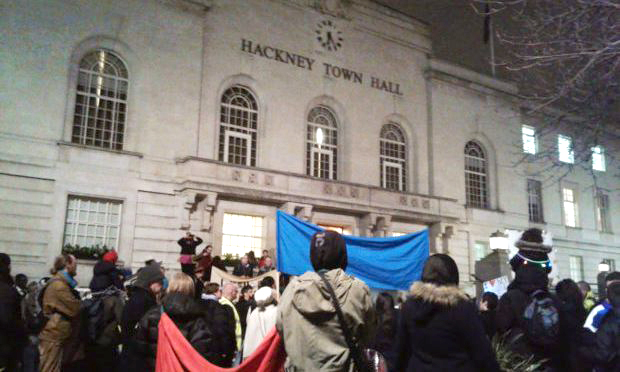SEND forecast around £9m more than agreed budget

Outcry: children protest SEND changes outside Hackney Town Hall. Photograph: Hackney Citizen
Hackney Learning Trust (HLT) is predicting a significant decrease in its reserves, mainly due to pressures in special educational needs (SEND).
The news follows a sustained campaign by local parents and teachers against cuts to high needs SEND funding.
SEND activities are forecast to spend around £9m more than agreed budgets, which will be offset by the council-funded education body’s reserves and savings made across its other departments.
In agenda papers released ahead of next Monday’s cabinet meeting, a paragraph reads: “Costs associated with special educational needs have complex cost drivers and senior leadership across HLT and the wider Council continue to investigate ways where the Council might be able to bring expenditure under control.”
It is predicted that HLT’s reserves will be completely used up by 2019/20.
The council says the SEND cost pressure is due to the growing pupil population and the demands on the system since reforms were introduced by the Children and Families Act 2014 to improve the quality of education for children with special educational needs.
The council has also commited to improving these services in the borough, as set out in its Community Strategy (2018-2028): “The Council will review our Special Educational Needs (SEND) strategy with a view to investing, where possible, in more Hackney-based provision.”
Parents, carers and teachers protested outside Hackney Town Hall in February against changes to SEND funding, including a five per cent cut and changes to the funding model.
The council said the changes were needed to plug a £6 million shortfall in council finances after government cuts to local budgets.
Hackney Council dropped proposals for a different funding approach to SEND after public opposition.
But the council is going ahead with five per cent cuts to high needs SEND funding, which it blames on government cuts to the council’s SEND budget.
Campaigners were recently granted permission to launch a judicial review of the Town Hall’s decision after crowdfunding £5,000 to cover their legal costs.
